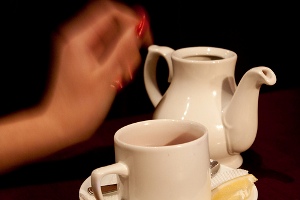Was Your Tea Tested on Animals?
UPDATE: Unilever—the the world’s largest tea maker, which makes the Lipton and PG Tips brands—has agreed to halt all animal tests. Please read here for more info.
If you’re sipping Lipton, it was. The makers of Lipton tea have conducted (or paid others to conduct) painful, invasive tests on hundreds of animals—possibly more. Here are some of the details:
- Rabbits were fed a high-fat diet and then given tea to see if it affected the plaque that had formed on the animals’ arteries. After the experiment, the rabbits were decapitated.
- Mice were fed tea ingredients to see if they had any effect on bowel inflammation. After the test, experimenters killed the mice by suffocating them or breaking their necks.
- Rats were forced to eat a high-sugar diet, and then tea was given to the animals to see if it had an impact on their sugar-induced brain damage.
- Piglets were infected with E. coli toxin and then fed tea in order to see if the tea affected diarrhea. Experimenters cut the pigs’ intestines apart while the animals were still alive.
None of these tests were required by law. In fact, regulators have stated that animal tests are not sufficient to prove a health claim about a product.
Please take a moment and urge the makers of Lipton to stop the crueltea to animals and to use modern, non-animal testing methods instead, just as Honest Tea, Stash, Twinings, Luzianne, and other tea companies already do.
Written by Alisa Mullins


